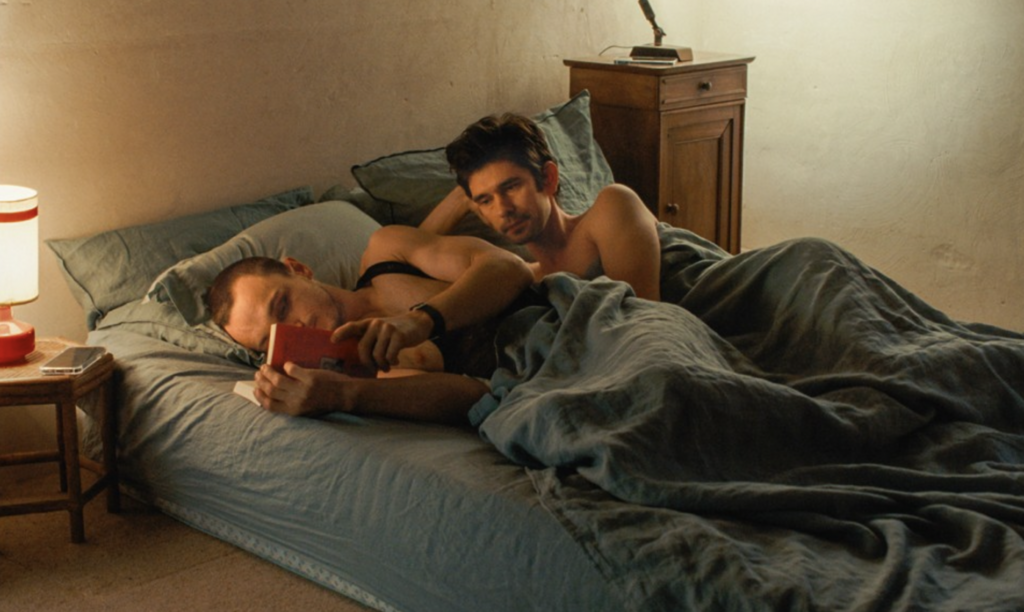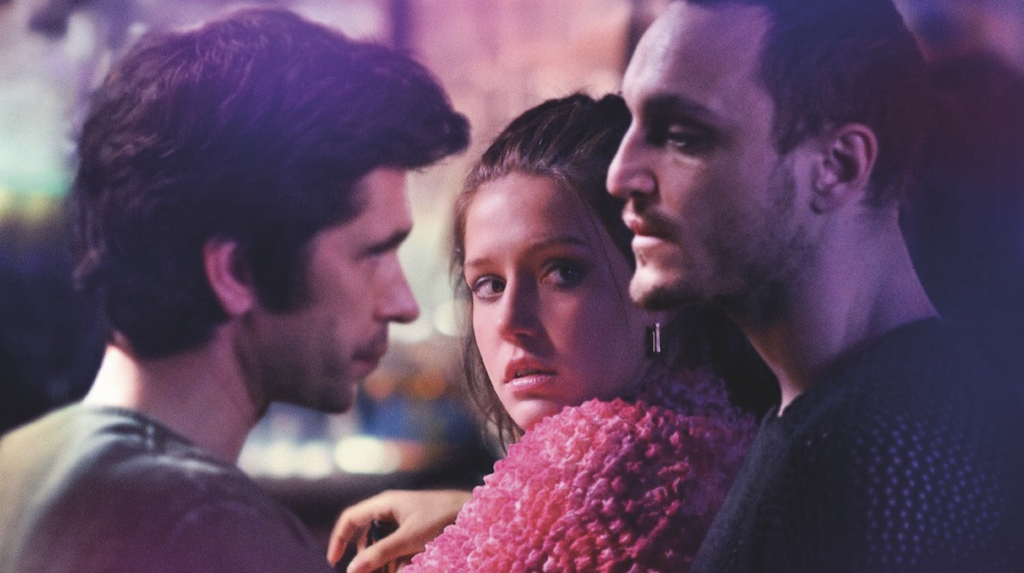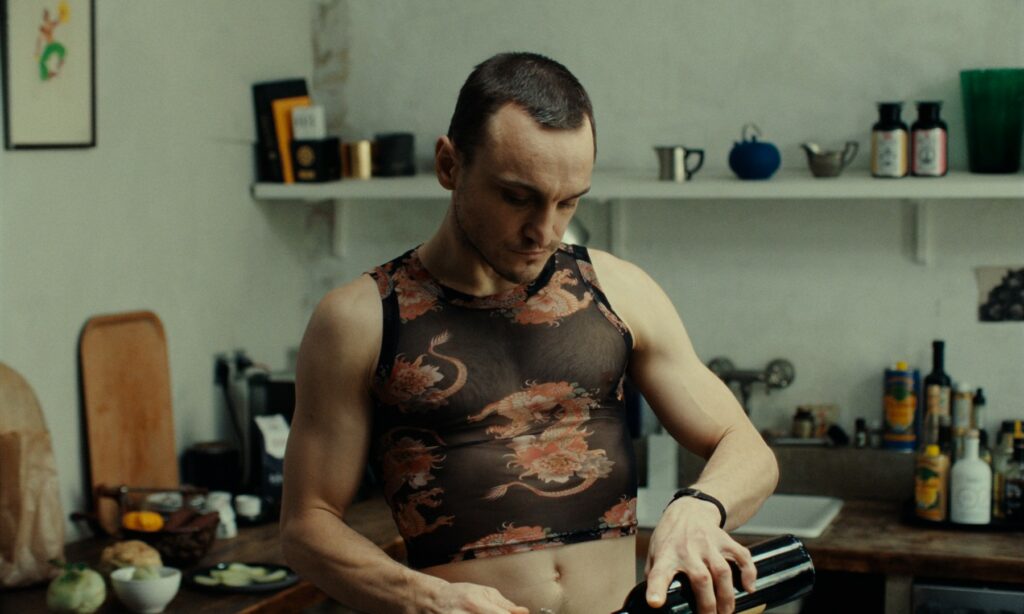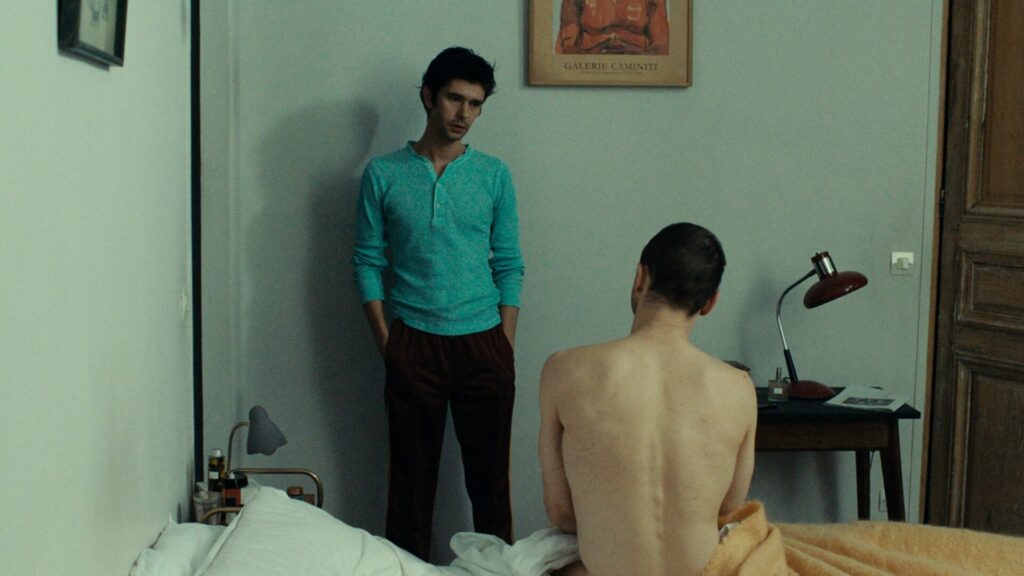Passages’ Ira Sachs and Franz Rogowski on triadic relationships and ‘storytelling through sex’
Exclusive: James Hodge talks to director Ira Sachs and actor Franz Rogowski about their critically acclaimed new film Passages: from the art of collaboration to finding comedy in tragedy
By James Hodge

The fascination of watching Passages, the latest movie of Ira Sachs starring Franz Rogowski, Ben Whishaw and Adele Exarchopoulos, is its objectivity. An exploration of what happens when Tomas, a gay man, cheats on his long-term partner Martin with Agathe, a heterosexual woman, the film leaves the floor open to the audience to make their own judgements.
Can a person’s sexual identity change? What’s the best way to explore triadic relationships ethically? How are relationships that exist outside of traditional boundaries impacted by modern society? This poignant cinematic slice of life asks many questions, but answers few.
The film’s take on contemporary fluidity – this generation’s increased rejection of labels and limitations – is reflected by the generational gap of the director and lead actor respectively. When asked about his identity and pronouns, it is a straightforward question for Sachs: ‘My pronouns are he, him, and I identify as a gay man, who is queer.’
Rogowski’s answer is less straightforward. “Well, I don’t identify with any label. I don’t really see myself as a complete and finished identity. The older I become, the more I feel like I was raised in a world that limited me. You can only explore things that you have a vocabulary for. I feel like the more language I gather, the broader my sexual horizons become.”
The generational gap is pronounced here by Sachs: “My answer is generationally more necessary. I had to actually state that I was a gay man, I needed to establish that because it was denied by everything around me. And also, I needed the community and culture that being gay gave me access to. I think this discussion reflects what’s interesting about the film Mauricio [Zacharias] and I wrote, which was about a person changing sexual identities. What I learned is that for the next generation characters of the movie, it feels more incidental. Tomas doesn’t change – he falls in love with a specific person who happens to be female. It’s a person shift rather than a labelling shift. It’s specific to the people in this entanglement.”

This meeting of generational perspectives may be explained by Sachs’ highly collaborative working practice. “I cherish collaboration with my cowriters, my actors, the editor… Everything goes through me but is not from me. I get everything I can out of people.”
However, when writing Passages, Sachs always had Rogowski in mind. What was the highlight of playing Tomas, the antihero who has it all and yet is never satisfied? “It’s fun to have a lead that refuses to give straightforward answers – whose moral and ethical codes are ambiguous. He also revels in pain as much as pleasure.” And the biggest challenge? “Reading Tomas felt intimidating. But not only were we given an incredible script, but we were given the invitation by Ira to bring ourselves and our ideas to our roles. It was easy to bring Tomas to life in this creative environment.”
Sachs is equally praising of his cast: Rogowski is an “animal” on-camera, and Whishaw “brings a sharpness that cuts like a knife through his performance.”

Sachs cites Visconti’s The Innocent as inspiration for his premise, seeking to queer the narrative. How did a movie made in the 1970s feel relevant when he wrote it? “The idea came to me during the pandemic when I, like many others, suffered with depression. I thought, but I am a man with a happy relationship, a family, a home over my head, a career. Yet still I wanted more. That’s what interested me; the eternal gap between what you have and what you want that feels so fundamental to the male experience and how that translates to a queer context.”
The affair is fuelled by desire, captured in some of the most beautifully shot sex scenes in cinema. It’s unusual, however, that Rogowski has the experience of having sex (simulated, of course) with both a man and a woman on camera in the same movie. “It’s wonderful to have the challenge of portraying these differing sexual experiences from the same character’s perspective. Sex becomes a device for storytelling – with Martin I wanted to show how their sex reflects their oneness of being together for so long. Even the shots of the sequence are slow and lingering. In contrast, with Agate it’s something fresh, instinctive, and exciting.”
It is this fluidity that makes Passages so watchable: sexy, tragic, and at points, even funny. One highlight – a sequence where Tomas meets his new lover’s parents whilst dressed in a silk crop top and baggy trousers – is laugh out loud funny. I’m struck whilst watching the film at the audible audience reactions as they watch the twists and turns of this very messy relationship develop. Is this a comedy rather than a tragedy? “The great filmmakers that I’ve been most inspired by are the ones that approach life with a sense of humour and the great artists. To me, we took a playful approach to this production – collaboration is play – and there was a sense of humour on set which I think comes through the texture of the film. What I wasn’t aware of is the pleasure of a communal audience watching someone break the rules.”

From talking to Sachs, it is evident that making queer cinema is still a challenge. I ask what advice he has to LGBTQ creatives who want to enter the industry. “It’s necessary to keep an eye on what’s been made before because watching cinema made with liberty over the past 100 years gives me the permission to make the images I want to. Watch films that are made with freedom and they can open new possibilities to your own imagination.”
And for Rogowski, what advice to LGBTQ actors? “I think the empowerment for an actor isn’t easy to find since you are so dependent on others to create life and circumstances for your craft. Try writing as part of your acting process in order to understand the challenges of it and enjoy the fact that others write for you, or equally write to create circumstances for your own acting or for others. Learn about cinematography, about music – the other elements of film too. Actors are often just seen as the interpreter but with more knowledge comes more freedom. I think the beauty of acting might be precisely that, that you are the canvas, but you also want to be the artist creating it.”
Passages will receive a UK cinema release on 1 September and will be available to stream on MUBI from October.
